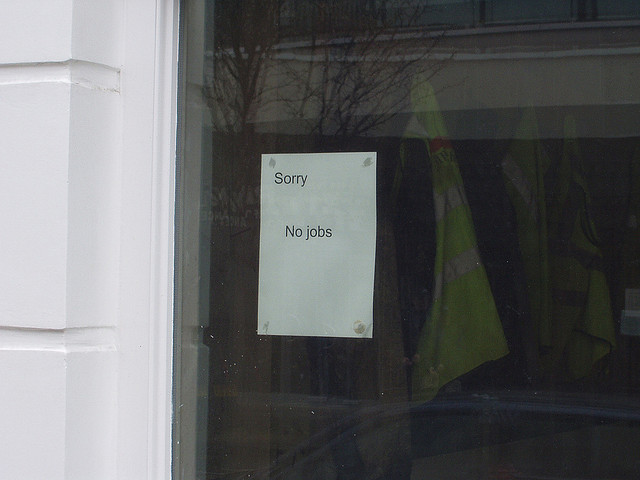In a superbly ill-phrased, ill-timed, ill-advised recommendation to young, unemployed Canadians, the Bank of Canada’s governor, Stephen Poloz, has told them to “Get some real-life experience even though you’re discouraged, even if it’s for free.” He’s all heart, he’s pushing this because he knows how “scarring” unemployment can be. It’s no gaffe. He’s since “doubled down.” He’s especially infatuated with the term, “scarring,” as if it shows how sensitive he is. Seriously: the remedy for scars inflicted by unemployment is to work for nothing.
My problem with this isn’t that he’s promoting virtual slave labour as an alternative to staying at home in your parents’ basement, getting depressed and scarring over. (He relishes the basement image too.) What annoys me is his implication that youth aren’t already working gratis much of the time.
Talk to them. Looking for work is now a full-time job on its own. Many of them take it for granted. Ask how many times a day they check job listings on their smartphones. They shake their heads and can’t even say, it’s so routine. Updating your resumé gobbles time too. If you didn’t grow up in the high-resumé years, you probably won’t get this. But you need specific skills, you have to keep up with the latest tics, and constantly add items.
These are people you see in cafés (versus basements) hunched over laptops, checking phones, hoping for an interview — a sort of high when it comes though it rarely results in a job — but dejected over how rarely even that happens. There’s no time to do nothing. There isn’t time either to relax between messages or job checks to ponder what you actually want to do with your life.
As for the unpaid internships Poloz encourages, the problem isn’t that the young won’t take them, it’s that many have already had too many. They’ve gone from internship to internship, hoping one will turn into a (fanfare) JOB. At a certain point, they say, it gets hard to score more internships because they’re overqualified, just like in the real job market. They’ve experienced themselves out of contention. Employers are worried they’ll be jaded, less enthusiastic, so they turn to fresh faces. It’s like the PhDs who hop between universities taking underpaid posts, unable to land a permanent job. Some are retiring now. Except the young interns (I know, sounds like a TV soap) don’t even earn a pittance
Finance minister Joe Oliver chimed in unhelpfully saying the young face a Catch-22 since you can’t get the experience you need if you don’t already have some. Ergo take the free work. Sorry, Joe, but no. They’ve tried that. Plus they’re probably temping to scrounge enough for rent and coffee — as “associates” in retail or hospitality, say, where they get inflated titles in lieu of decent wages. They work while they work to find work.
My own response to hearing the young talk about this is mostly sadness — at their inclination to take the burden of responsibility on themselves. They assume they haven’t done enough, maybe they should check those listings once more, pad the resumé a tad, volunteer again. This in turn opens the way for “life coaches” who reinforce the sense that it’s all your personal failure. Meanwhile those with resources to seriously expand the job market keep cutting jobs instead. This week Scotiabank slashed 1,500, after “sky-high” profits.
You know what really scars the young? Being betrayed by an older generation with the power and position to affect the forces that affect them, who say instead to work for free and maybe, eventually, it might work out.
This week I attended a gala for the Canadian Civil Liberties Association and happened to meet Jean-Pierre Kingsley. He’s a brave bureaucrat, former boss at Elections Canada. He fought lengthy battles with Stephen Harper over integrity in the voting process. Others with guts, like budget officer Kevin Page and StatsCan head Munir Sheikh, are gone too and replaced by ciphers (or worse) such as Poloz. But, like The Doctor in Doctor Who, those guys managed to regenerate after an earlier generation of high-level civil servants went over to the dark side. The question is, How many regenerations do they have in them?
This column was first published in the Toronto Star.
Photo: Metro Centric/flickr




